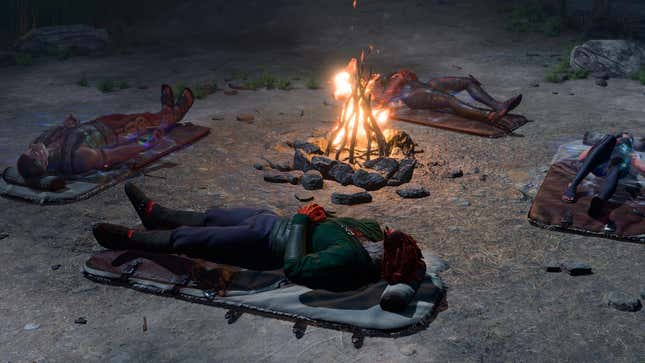
D&D characters recover everything from spell slots for caster classes to ability charges and other limited skills for martial classes, as well as hit points, during rest periods. In the TTRPG, this also narratively acts as the passage of time—long rests are usually overnight chances for a party to eat, sleep, and perform menial work outside of the usual constraints of their adventuring, and players can’t gain the benefits of taking a long rest more than once every 24 hours. During this time they will recover all of their health, most caster classes will recover all of their spent spell slots, and characters will also recover any spent hit dice they used during short rests. Short rests, meanwhile, are about the equivalent of an hour’s break, and while there’s no specific hard limit on the number of short rests you can take in D&D, you typically don’t take more than a few between long rests. Certain classes will recover ability or weapon skill charges during a short rest—Warlocks recover their spell slots on short rests, for example—but they’re largely used for players to spend the aforementioned hit die in their pool to regain some or all of their hit points.
Advertisement
All this also applies in Baldur’s Gate 3, with some more specific caveats. You can only take up to a maximum of two short rests between long rests, and in order to perform a long rest, you need enough camp supplies—in the form of food and drink—to get its full recovery benefits. You can perform a partial rest, which recovers some of your hit points and spell slots but not all of them, and doesn’t refresh your short rests either.
Services Marketplace – Listings, Bookings & Reviews